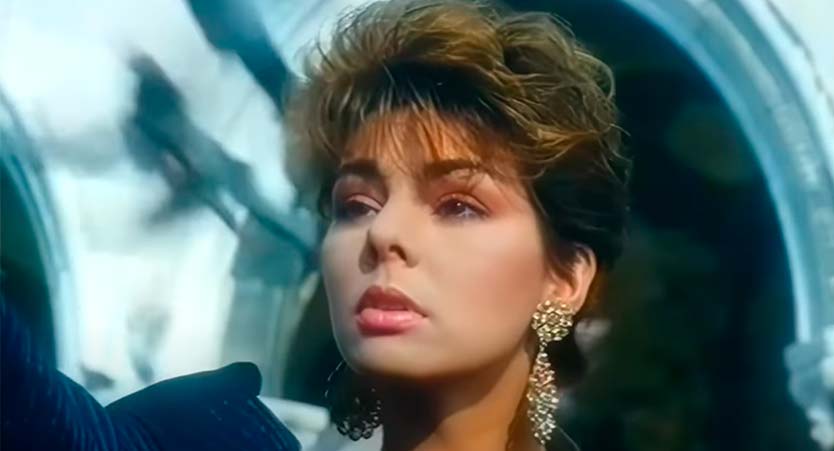Sandra – “Little Girl”:
Dream-Pop Melancholy in a Velvet Synth Wrap
Released on 24 February 1986 as the third and final single from her debut album The Long Play, “Little Girl” is one of Sandra’s most introspective and haunting tracks. Best known for sensual Euro-pop hits like “(I’ll Never Be) Maria Magdalena” and “In the Heat of the Night,” Sandra took a more vulnerable turn here — trading seduction for sorrow, and tempo for tenderness.
This wasn’t dancefloor pop. This was emotional atmosphere.
The Cretu Signature Sound
Produced by Michael Cretu — Sandra’s longtime collaborator and future Enigma architect — “Little Girl” floats in a haze of breathy vocals, ambient synth pads, and spacious, reverb-drenched percussion. Co-written by Cretu with Hubert Kemmler and Markus Löhr, and lyrics by Klaus Hirschburger, it captures the classic mid-’80s Euro-pop blueprint: icy elegance with an aching human core.
Cretu’s touch is everywhere, but never heavy-handed. The arrangement gives Sandra room to drift — fragile and precise, like memory on the breeze.
Lyrical Innocence with an Edge
The lyrics, deceptively simple, carry undertones of lost innocence and emotional withdrawal: “Hey little girl / Don’t wanna cause you pain / But the big boys feel no sorrow.”
Rather than comfort, there’s resignation. It’s not about childhood nostalgia, but about facing harsh adult truths through the eyes of someone still learning how to feel safe. Sandra’s delivery hovers between whisper and sigh, lending the song its ghostly strength.
Visuals in Pastel and Shadows
The music video, directed by Mike Stiebel and filmed in Venice, plays like a soft-focus dream sequence. Sandra wanders through misty canals and decaying palazzos, haunted by the spirit of a girl named Angela Venezia. It’s heavy on symbolism — flickering candles, rain-dappled windows, wistful glances — and light on narrative, reinforcing the song’s abstract emotional weight.
Chart Performance and Reception
“Little Girl” wasn’t a chart-topping juggernaut, but it fared respectably. It reached No. 14 in West Germany, No. 18 in Switzerland, and No. 27 in Austria, while peaking at No. 3 in Greece, No. 6 in Italy, No. 38 in Belgium, and No. 48 on the European Top 100. Compared to the enormous success of her earlier singles, it may seem modest — but its emotional resonance has only deepened with time.
The B-side, “Sisters and Brothers,” written by Sandra’s brother Gaston Lauer, added a personal touch to the single’s release.
Legacy: Subdued, but Strong
“Little Girl” remains one of Sandra’s most emotionally charged and understated songs — a slow-burn ballad that trades spectacle for sincerity. It doesn’t clamor for attention. Instead, it lingers like smoke, echoing across rainy afternoons and reflective evenings.
For listeners who crave pop music with atmosphere, ache, and beauty in restraint, “Little Girl” is a quiet masterpiece — and one that rewards every replay.
